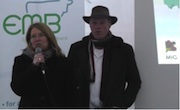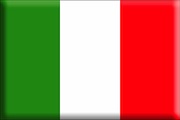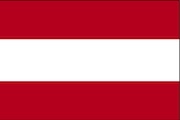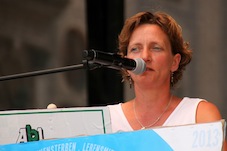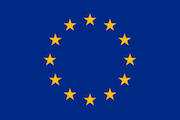EMB Newsletter March 2015
Newsletter as PDF
Contact
EMB - European Milk Board asbl
Rue de la Loi 155
B-1040 Bruxelles
Phone: +32 - 2808 - 1935
Fax: +32 - 2808 - 8265
Dear Dairy Farmers and Interested Parties,
In just a few weeks the time will finally have come. The limit on milk volumes that started back in 1984 is being abolished. When the quota system was introduced over 30 years ago it had two aims:
Firstly the market organisation was to be affordable again. For that it was essential to get rid of the EU milk lakes and butter mountains. This aim was achieved in a short time. Within a few years the market organisation costs for the dairy sector were cut from 7.5 billion euros to under 2 billion euros.
Secondly producer prices were to be stabilised, thus avoiding structural breaks. This aim was likewise achieved, even if milk prices could have been better arranged for the farmers by being more consistently applied. It is just that this was not what the politicians wanted, after all it was deemed important to exploit “export opportunities” in the past, too. All in all the milk quota system was a cost-effective and efficient instrument for the state to stabilise the market. For dairy farmers the quota meant more or less dependable general conditions. To those organisations that moaned the quota system didn’t work, one thing has to be said: it worked exactly as those applying it had intended.
However, the quota system cannot be blamed for the severe market crises of 2009 and 2012, they were due solely to the deregulation of the milk market with the dire soft landing. A flexible supply management system could have easily stabilised the market and thus prevented those crises with the losses of billions for the dairy farmers.
And now? Since November 2014 the impending, record-high super levy of about 20 cents a kilo of oversupply has resulted in a clear reduction in the supply of milk. As painful as the super levy may be for those farms that milked in the first half of the dairy year as if milk was going out of fashion, it has been effective in halting the slump in prices. The prices quoted for the primary products butter and SMP are rising, and the market has temporarily stabilised.
But what is to come after 1 April? The most likely scenario is that dairy farmers will boost their production in many EU countries, regardless of the situation in the milk market. Another drastic price collapse seems inevitable, along with the next market crisis.
To counter this ever-recurring market failure, the EMB is calling on European policy-makers to implement a Market Responsibility Programme. The current situation/developments in the last three to four months make it patently obvious that with clear guidelines and political will it is perfectly possible to systematically counter market distortions. Even in a period without quotas, such a programme can also create an incentive for dairy farmers to act in line with the market. Anyone producing more despite market saturation should also assume responsibility for this and pay a market responsibility levy. On the other hand, anyone producing less in such a situation should be paid a bonus. This can create a stable environment and ensure milk production throughout the EU.
Romuald Schaber, EMB Präsident
Call for participation: Vigil, press conference & symbolic action on 31 March in Brussels
Presentation of the results of the study on milk production costs in Belgium
French dairies: compulsory contracts – situations and risks
Italy: Round Table on Milk
“We are fed up!” platform demands radical change in Austrian agricultural policy
UK Election Time: An Opportunity Not To Be Missed!
Member associations: Change at the top
News from Brussels
EMB Agenda
The EMB Board’s key dates in March 2015:
- 02.03.: “Milk” civil dialogue group meeting
- 03.03.: Meeting with MEPs
- 04.03.: Presentation of the Belgium cost study
- 04.03.: “CAP” civil dialogue group meeting
- 05.03.: Debate on the future of the dairy sector, Committee of the Regions
- 18.03.: “Milk Policy for the 21st Century” conference, EDA
- 31.03.: EMB vigil and symbolic action
Impressum
European Milk Board asbl
Rue de la Loi 155
B-1040 Bruxelles
Phone: +32 2808 1935
Fax: +32 2808 8265
E-Mail: office@europeanmilkboard.org
Website: http://www.europeanmilkboard.org


